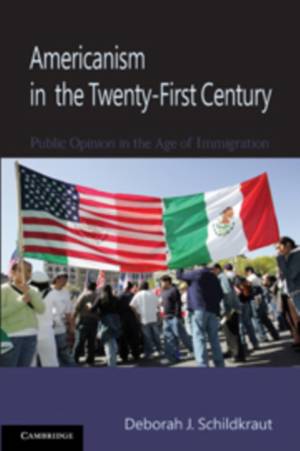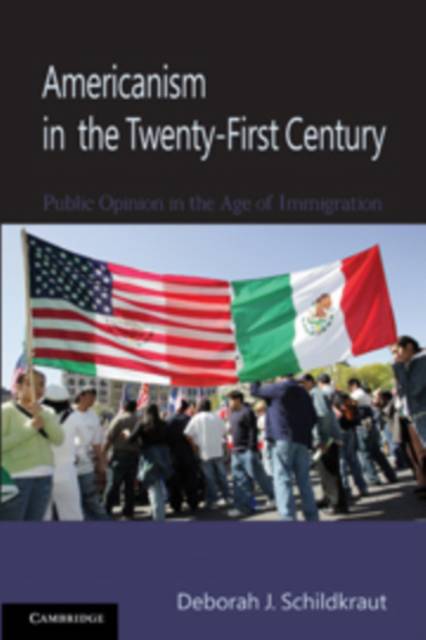
Bedankt voor het vertrouwen het afgelopen jaar! Om jou te bedanken bieden we GRATIS verzending (in België) aan op alles gedurende de hele maand januari.
- Afhalen na 1 uur in een winkel met voorraad
- In januari gratis thuislevering in België
- Ruim aanbod met 7 miljoen producten
Bedankt voor het vertrouwen het afgelopen jaar! Om jou te bedanken bieden we GRATIS verzending (in België) aan op alles gedurende de hele maand januari.
- Afhalen na 1 uur in een winkel met voorraad
- In januari gratis thuislevering in België
- Ruim aanbod met 7 miljoen producten
Zoeken
Americanism in the Twenty-First Century
Public Opinion in the Age of Immigration
Deborah J Schildkraut
Paperback | Engels
€ 46,45
+ 92 punten
Uitvoering
Omschrijving
This book explores public opinion about being and becoming American, and its implications for contemporary immigration debates. It focuses on the causes and consequences of two aspects of American identity: how people define being American and whether people think of themselves primarily as American rather than as members of a panethnic or national origin group. Importantly, the book evaluates the claim - made by scholars and pundits alike - that all Americans should prioritize their American identity instead of an ethnic or national origin identity. It finds that national identity within American democracy can be a blessing or a curse. It can enhance participation, trust, and obligation. But it can be a curse when perceptions of deviation lead to threat and resentment. It can also be a curse for minorities who are attached to their American identity but also perceive discrimination. The notion of American identity is a predisposition that the government has good reason to cultivate, but also good reason to approach with caution.
Specificaties
Betrokkenen
- Auteur(s):
- Uitgeverij:
Inhoud
- Aantal bladzijden:
- 280
- Taal:
- Engels
Eigenschappen
- Productcode (EAN):
- 9780521145244
- Verschijningsdatum:
- 15/11/2010
- Uitvoering:
- Paperback
- Formaat:
- Trade paperback (VS)
- Afmetingen:
- 235 mm x 156 mm
- Gewicht:
- 385 g

Alleen bij Standaard Boekhandel
+ 92 punten op je klantenkaart van Standaard Boekhandel
Beoordelingen
We publiceren alleen reviews die voldoen aan de voorwaarden voor reviews. Bekijk onze voorwaarden voor reviews.









